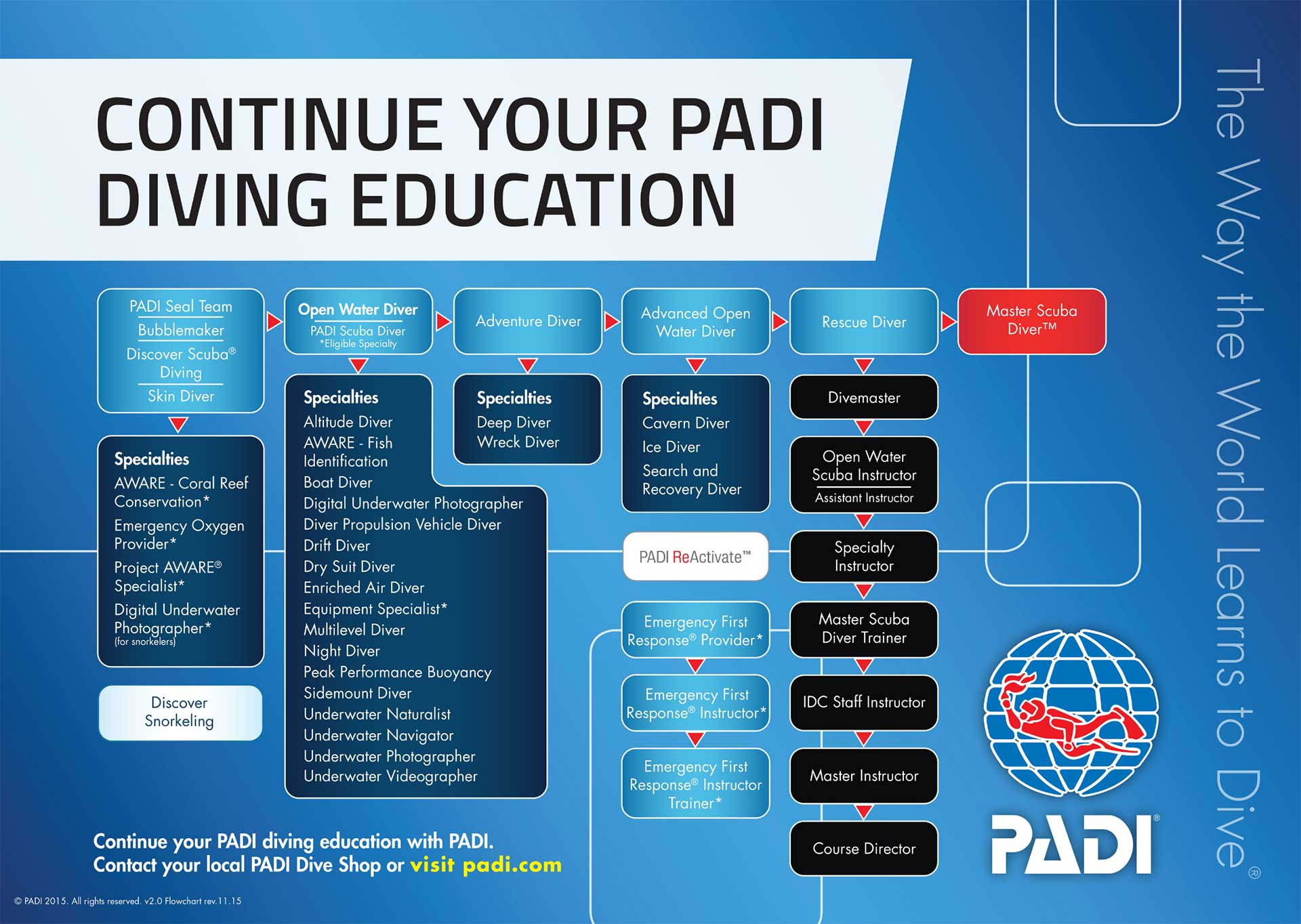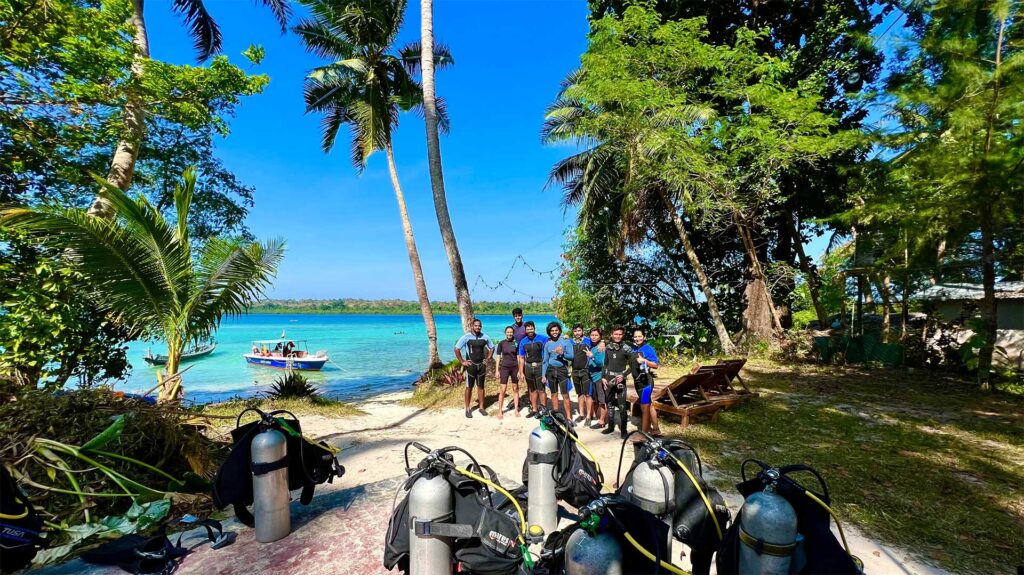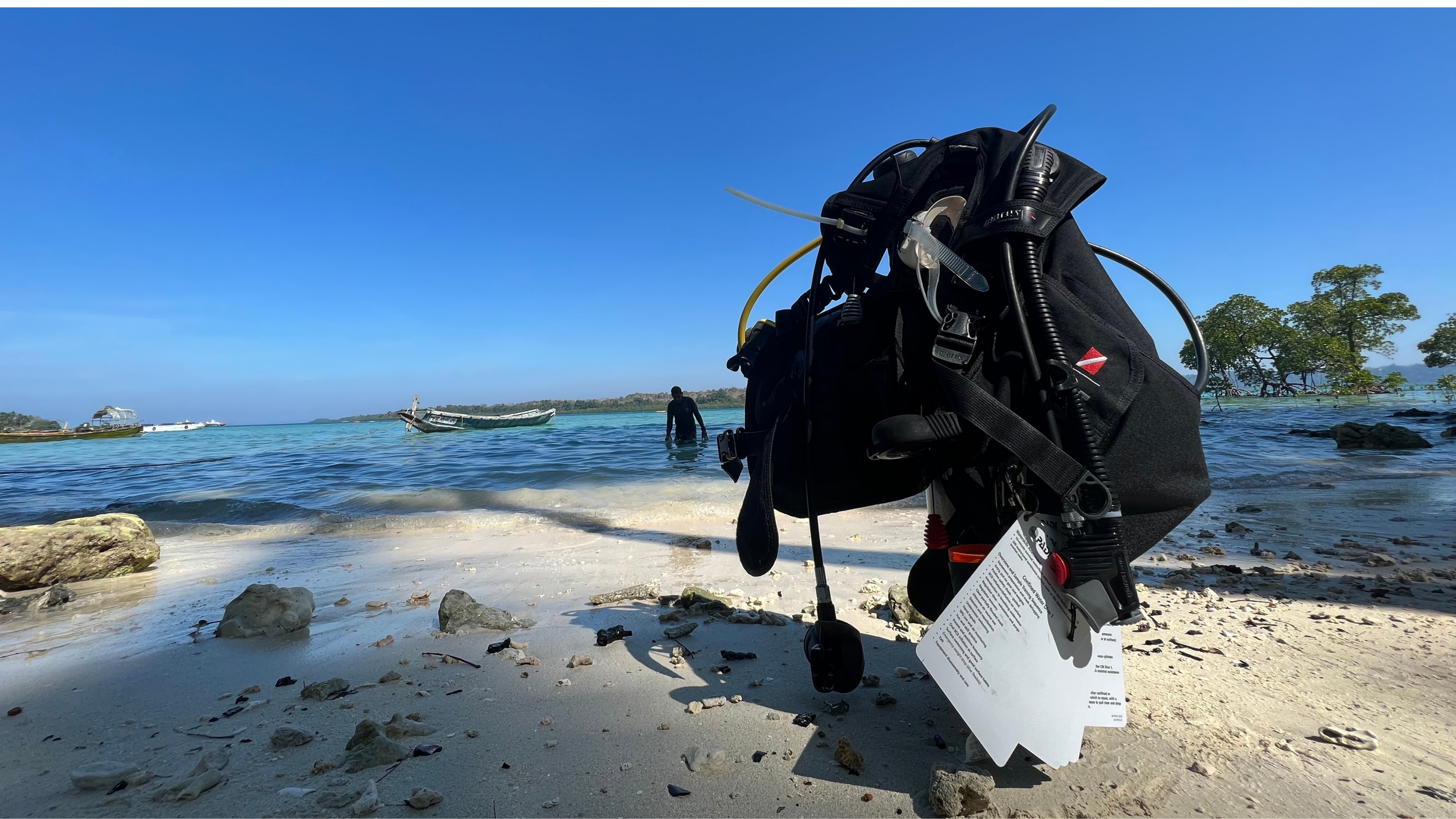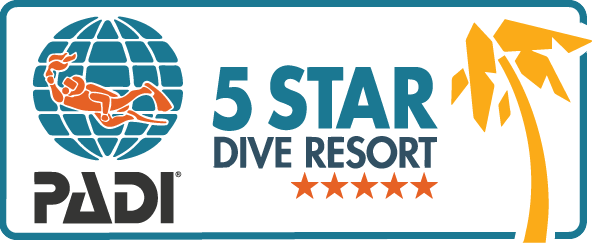Curiosity and a thirst for adventure are why many of us become divers in the first place. These days, most of us get inspiration from our friends’ and families’ social media posts about their dive vacations and PADI certification. But what are the key factors that need to be considered when choosing a dive center or dive resort for your PADI certification and location?
Key factors that individuals should consider when planning and choosing a PADI certification course:
Any individual seeking PADI certification needs to understand a few basic things:
– Prerequisites: Basic swimming skills, minimum age of 10 years, and favorable medical conditions according to international standards. The duration of courses can vary from 2 days to 8 days.

Location:
When you are planning for the PADI certification course, the location is important to consider. Decide whether you want to learn to dive in a specific location or if you are open to traveling to a different one. For example, if you choose Havelock Island in the Andaman & Nicobar Islands, India, you need to check the entire travel logistics, including your flights from your location to Port Blair (PB), traveling and stay in PB, ferry to Havelock, and return. Is your dive center advising you on the best options and logistics for a comfortable trip?
PADI (Professional Association of Diving Instructors) IS THE WORLD’S LARGEST AND MOST POPULAR DIVER ORGANIZATION:
A PADI 5 Star Dive Center & Resort is a prestigious designation awarded by the Professional Association of Diving Instructors (PADI) to dive centers that meet high standards of professionalism, safety, quality, and customer service. This rating signifies that the dive center and resort are not only PADI-certified but also go above and beyond in providing exceptional diving experiences and education.
Instructional System:
The PADI System of diver education is the most instructionally solid system in diving. PADI courses are designed to make learning enjoyable and worthwhile. Under the guidance of your professional PADI Instructor, you gain confidence while mastering important safety concepts and skills. PADI Instructors are trained and held to diving’s highest standards, backed up by a solid, proactive quality management system. You progress at your own pace as you demonstrate mastery of specific performance requirements essential to becoming a scuba diver. You must earn your PADI certification, but you do so in an encouraging and well-supported learning environment.
Choosing a PADI 5 Dive center & Resort (everything under the same roof):
– Ask friends, family, and your extended social network for recommendations.
– Dive center websites.
– Online review sites such as TripAdvisor can also be a good resource. Don’t rule out a business for one or two negative reviews, especially if there are dozens of positive ones and the dive shop has responded in a professional way.
If you’ve perused the options and every dive shop has a near-perfect rating, how do you narrow it down? Focus on the things that matter most to you.
Consider what’s most important to you: small groups or the lowest price. Make a list of the amenities your ideal dive shop would have and start narrowing down your options.
- Safety: Safety should be a top priority. Inquire about the dive center’s safety protocols, emergency response plans, and the maintenance of their diving equipment. A reputable dive center should have well-maintained facilities, safety briefings, and first aid-trained staff.
- Equipment: The dive shop will have a wide range of high-quality, well-maintained gear, including dive computers, tanks, regulators, wetsuits, fins, and masks. Consider how many dive boats they offer for dive operations.
- PADI 5 Star Dive center & Resort: This designation represents a commitment to exceptional training, quality service, and environmental stewardship. For divers, it signifies a reliable and enriching diving experience, while for operators, it offers credibility, recognition, and a chance to stand out in the competitive diving industry.
- PADI 5-star Dive Resort: The dive center and dive resort should be under one roof. This needs to be considered a top priority for any student. When a dive center and dive resort are located together, divers have everything they need in one place. They can easily access dive equipment, receive training, book dives, and stay in accommodation without the hassle of commuting between different locations. Operational logistics become more straightforward when the dive center and resort are integrated. Managing dive schedules, equipment storage, transportation to dive sites, and accommodation arrangements becomes more efficient. Divers can maximize their time in the water and minimize downtime. With everything conveniently located, there’s less time spent on travel and more time available for learning, diving, and relaxation. Safety is paramount in scuba diving. An integrated setup allows for better coordination between dive professionals and resort staff in case of emergencies. Quick response and assistance can be provided, contributing to a safer environment for divers. Dive centers and resorts that work together can provide more personalized service. Staff members can get to know divers’ preferences, needs, and skill levels more effectively, enhancing the overall experience.
- Reputation & Reviews: A good dive center will have a good reputation in terms of good instructors & international teaching standards as well as a high-quality scuba diving experience, safety, and reliability. Recommendations from friends, travelers, and online reviews are valuable. Search for online reviews and testimonials from individuals who have completed their PADI certification at different dive centers. Reading about others’ experiences can provide valuable insights into the quality of instruction, safety measures, and overall satisfaction.
- Experience: Dive center & Dive instructors Dive masters will have years of diving & teaching experience in the scuba diving industry. They will have knowledgeable Dive staff who can help you in every way while doing your certification.
- Class Size and Personalized Attention: Smaller class sizes often allow for more personalized attention and a better learning experience. Check if the dive center limits the number of students per class to ensure that you receive proper guidance and instruction.
- Consider the course schedule and duration: Some centers offer intensive courses over a few days, while others may have more flexible schedules to accommodate various learning styles and commitments.
- Cost and Value: While cost is a factor, prioritize value over quality, safety, and having everything under one roof. A slightly higher cost for quality instruction, safety, and better facilities can lead to a more rewarding experience. Prefer to get a combination over PADI certification course + Stay + travel logistics under one roof.
- Trust Your Instincts: Ultimately, trust your instincts and choose a dive center and resort that align with your comfort level, goals, and expectations. If something feels off or if you have any concerns, don’t hesitate to ask questions.

Remember, selecting the right dive center and dive resort is a significant step in your scuba diving journey. Take your time, gather information, and choose a center that will provide you with the skills, knowledge, and confidence needed for safe and enjoyable underwater adventures with your friends.
In the end, you may need to simply call or visit the dive shop to make a final decision. Ask questions, and make mental notes of how helpful the responses you receive are. Does the staff seem enthusiastic about their local diving? How experienced are they? A shop with a majority of new staff and/or a shop with high turnover may be a bad sign.




